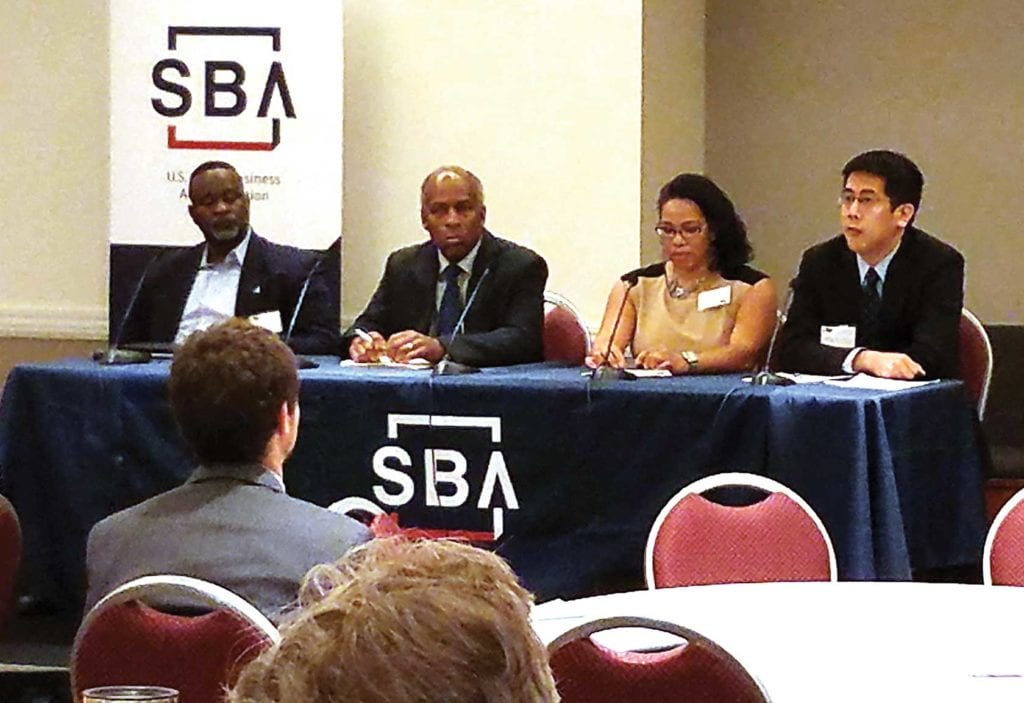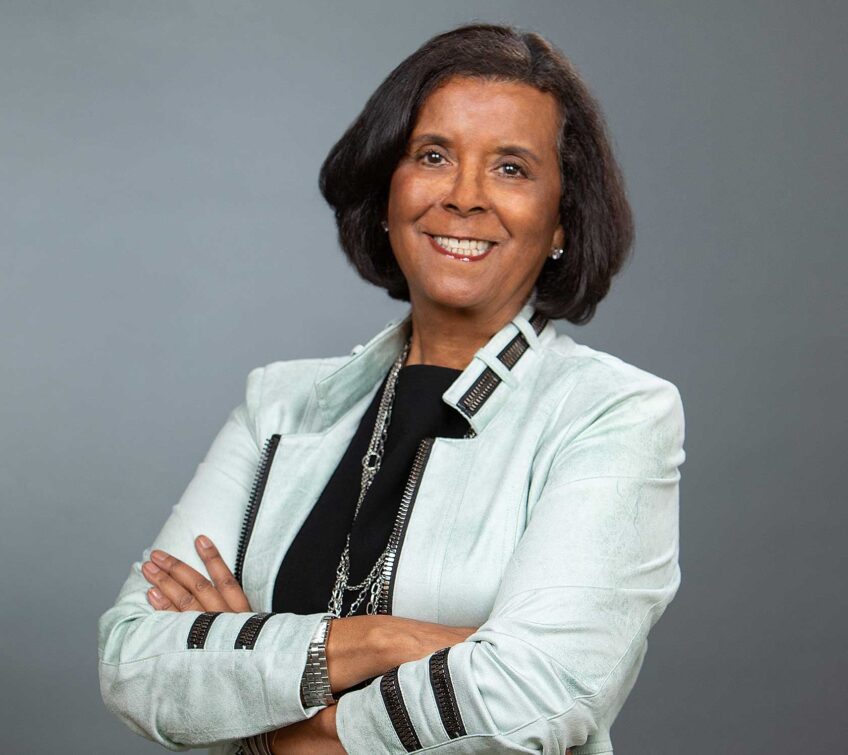HUBZone Program aims to reignite local economies
SBA program brings more business to Boston neighborhoods

The Massachusetts chapter of the federal Small Business Administration’s Historically Underutilized Business Zone (HUBZone) Program aims to revitalize the local economies of Boston neighborhoods. The program helps eligible small businesses — many of which are in Roxbury, Dorchester and Mattapan — by granting them priority in bids for federal contracts. The HUBZone program has been in operation for 10 years and Massachusetts has 50 certified firms, but Boston businesses have been slow to become certified.
Last Tuesday, the chapter held a conference on the HUBZone program at Suffolk University in Downtown Boston to inform local businesses about the opportunity and how they can take advantage of it.

Paul Gray of Outkast Electrical Contractors Inc. and Karl Coiscou of Quock Associates. Photo: Saphia Suarez
“We don’t have enough of the small business owners coming forward and identifying themselves as small business owners,” said Nadine Boone, lead business opportunity specialist at the Massachusetts District Office of the SBA.
The increased business and jobs generated are aimed at increasing economic opportunities in the zones, according to Boone.
“That’s what this is all about, it’s all about economic development,” she said.
David Polatin, deputy district director of the Massachusetts District Office of the SBA, added, “If people are living in a HUBZone and they’re working in a HUBZone firm, they will pay their rent, shop at the grocery store, and it builds up the area.”
Preferences
HUBZone is a preference program, so if eligible small businesses want to work with the federal government, there are set-aside projects on which only HUBZone businesses can bid.
“The government has ambitious goals,” said Polatin. “There’s a 3 percent goal for all government buying — 3 percent goes to HUBZone companies, and that’s 3 percent of $500 billion. That’s a lot of money, and what’s happening is that the federal government isn’t meeting that goal. So that’s why we do events like this, to try to get people to get into the program, to take advantage of this program.”
HUBZones are largely determined by unemployment and income. If the unemployment rate in an area is 40 percent above the state rate, and the average income is 40 percent below the state average, the area is likely a HUBZone, although there are other factors that go into the formula.
To be eligible for HUBZone certification, a business must have its office in a HUBZone and employ at least 35 percent of its workers from a HUBZone. In addition, it must be at least 51 percent owned and controlled by U.S. citizens, a Native American tribe, agricultural cooperative or Community Development Corporation, and be a small business according to the North American Industry Classification System (NAICS).
Paul Gray, the president of a small business called Outkast Electrical Contractors in Dorchester, attended the conference. He said that business for him has been slow but progressing, and he hopes that becoming HUBZone-certified will open up opportunities to work with the federal government.
Pluses and minuses

Nadine Boone and David Polatin of the SBA. Photo: Saphia Suarez
While the program offers benefits for small businesses, in some cases the requirements can make applying for certification a complicated decision.
Karl Coiscou owns a construction company, Quock Associates, LLC. He said he is wondering whether it makes sense to apply for HUBZone certification now, because his next big construction project is in Downtown Boston, which is not a HUBZone. However, many of his employees are HUBZone residents. He took on the downtown project because of the new push by Mayor Martin Walsh to increase the percentage of workers of color on Boston construction projects to 40 percent.
He praised the HUBZone program, though, saying formerly incarcerated youth can benefit from it, especially through construction work, a field they often can work in despite having a criminal record.






